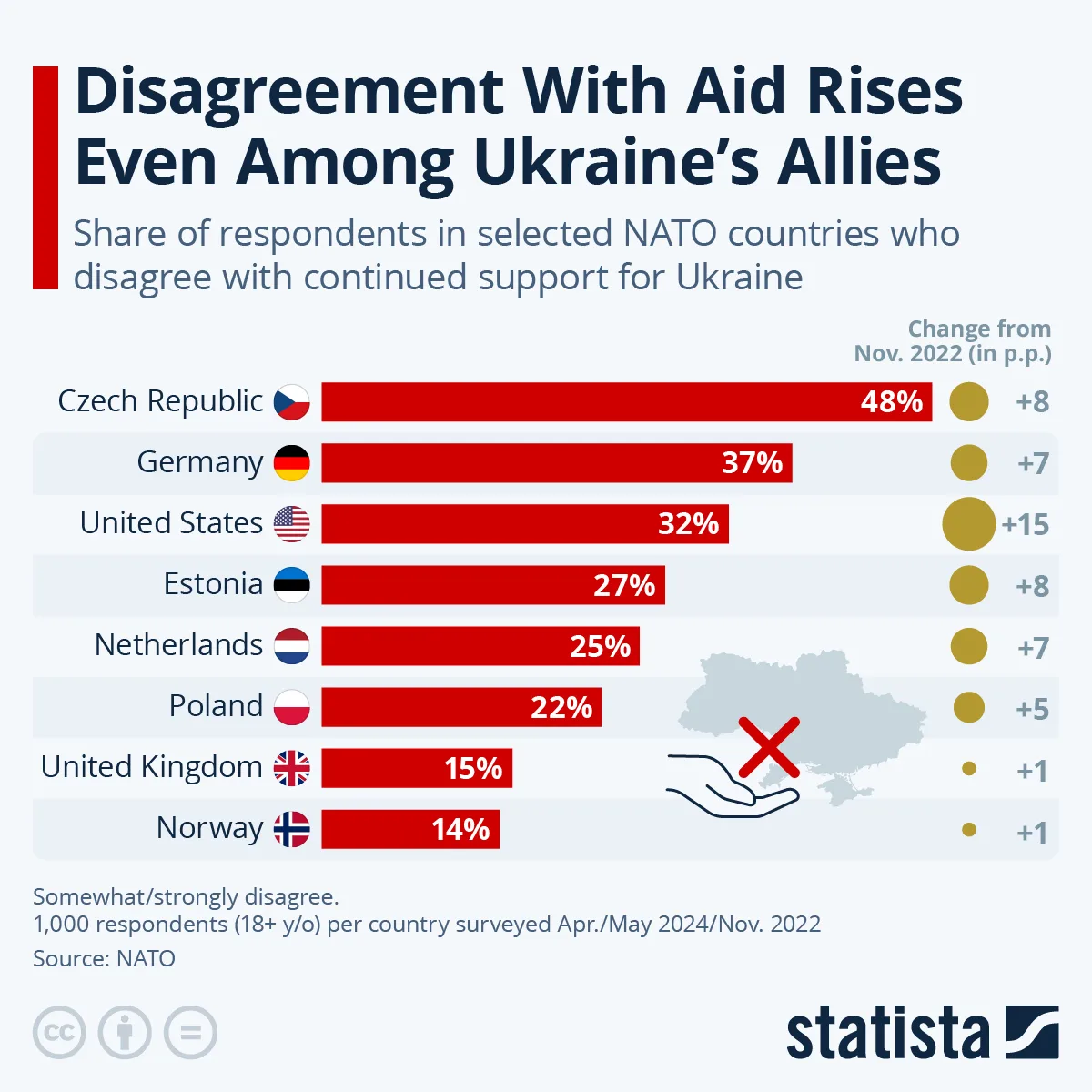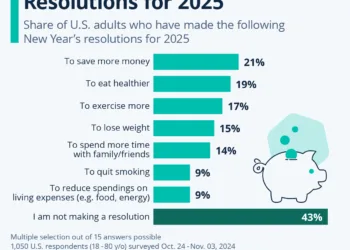Disagreement With Aid Rises Even Among Ukraine’s Allies
Introduction to Current Sentiments
As the conflict between Ukraine and Russia continues, public sentiment regarding military and financial support for Ukraine is shifting, especially in nations traditionally viewed as staunch allies. Recent data from NATO’s annual member survey reveals increasing levels of disagreement among the populations of these nations regarding continued aid for Ukraine. The shift in perspective is notable, particularly since the same questions were posed in November 2022.
The United States: A Significant Shift
Increased Disagreement Among Americans
The United States has long been one of Ukraine’s most significant supporters in terms of military and financial assistance. However, a recent surge in skepticism has emerged. Mid-2024 data indicates that 32% of Americans now either "somewhat" or "strongly" disagree with ongoing support for Ukraine. This figure represents a sharp increase from just 17% in late 2022, reflecting a growing divide in public opinion.
Political Climate and Its Influence
The changing sentiment comes amidst a dynamic political landscape, particularly with the election of President-elect Donald Trump. Historically known for rejecting extensive U.S. military commitments abroad, Trump’s leadership might contribute to the rising public hesitance towards international support initiatives.
Germany: A Stark Increase in Doubts
Rising Discontent Among Germans
Germany, another key supporter of Ukraine, has also seen a significant increase in disagreement among its populace. Data indicates that 37% of Germans now express dissatisfaction with continued aid to Ukraine, rising seven percentage points from the previous year.
Factors Influencing German Opinions
Concerns about domestic issues, including financial stability and public expenditure, likely play a crucial role in this burgeoning skepticism. As the war drags on, the German public may be grappling with the costs associated with prolonged involvement.
Eastern European Perspectives: A Surprising Turn
Continued Support Yet Growing Concerns
In Eastern European countries, traditionally viewed as unwavering allies, there is also a noticeable rise in skepticism. Countries such as the Czech Republic and Estonia, which have vocally championed Ukraine’s cause and provided substantial support, are witnessing increased public dissent regarding ongoing aid.
The Czech Republic and Estonia
Both nations are recognized for their generous contributions relative to their GDP. However, the latest sentiments reveal a growing malaise among their citizens regarding continued financial and military aid to Ukraine.
Poland: Mixed Views on Assistance
Support Retained but Discontent Rising
Poland, one of Ukraine’s top ten donors, shows a lower level of dissent at 22%. While this number is relatively small compared to other nations, it still signifies an emerging trend indicating that even among its closest allies, support is not guaranteed.
Comparison with Other Donor Nations
Interestingly, countries such as Norway and the United Kingdom display even more favorable views towards Ukrainians, with discontent levels remaining lower than in Poland. These differences underline the varying degrees of support among allies and highlight the complexities involved in public sentiment regarding foreign aid.
Conclusion Highlights
The increasing disagreement among the populace of Ukraine’s allies signals a turning tide in international sentiment towards the ongoing conflict. With significant political shifts, rising domestic concerns, and varying degrees of support across nations, it is essential to monitor how these attitudes evolve as the situation continues to unfold.










